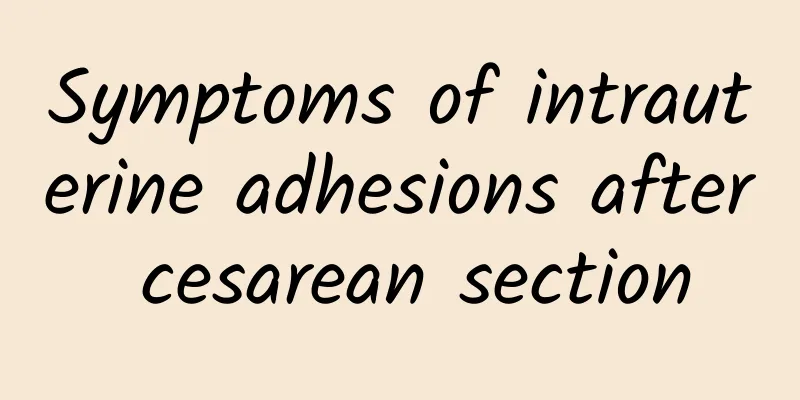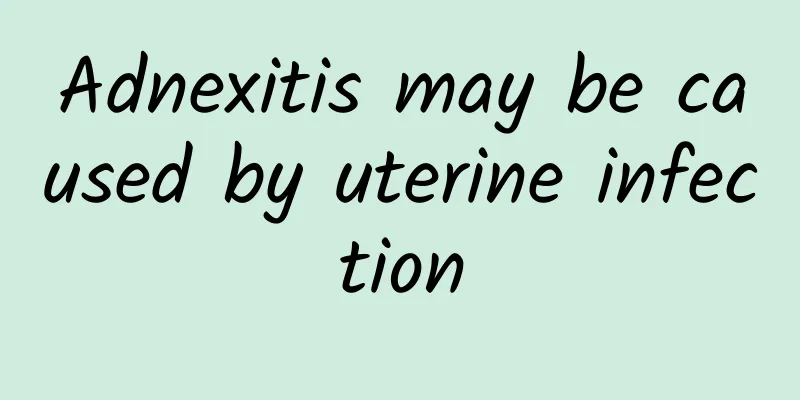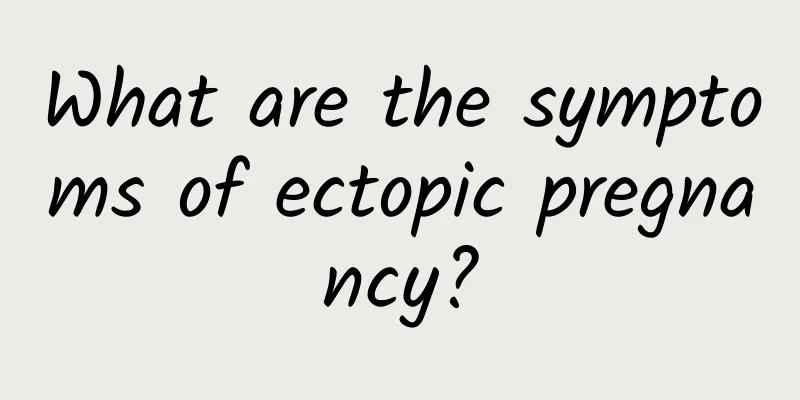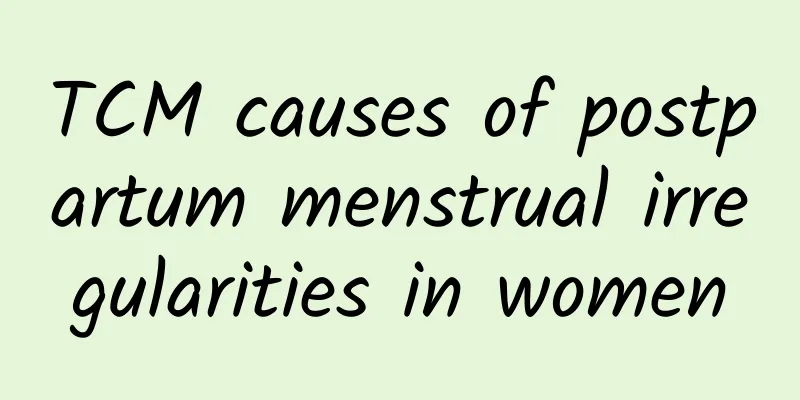Symptoms of intrauterine adhesions after cesarean section

|
Symptoms of intrauterine adhesion after cesarean section include abnormal menstruation, abdominal pain, infertility, etc. If the condition is serious, you need to seek medical attention in time. The occurrence of intrauterine adhesion may be related to surgical trauma, infection, improper postoperative care, etc. Treatment methods include drug therapy, surgical treatment and auxiliary therapy. 1. Abnormal menstruation Intrauterine adhesions may cause decreased menstrual flow, prolonged menstruation, or amenorrhea. This is because the adhesions prevent the normal shedding and regeneration of the endometrium. If menstrual abnormalities occur, it is recommended to seek medical attention in a timely manner and confirm the diagnosis through ultrasound or hysteroscopy. Mild adhesions can be treated with medication, such as the use of estrogen to promote endometrial repair. 2. Abdominal pain Some patients experience periodic or persistent lower abdominal pain, which is especially severe during menstruation. This may be due to adhesions pulling on the uterus or pelvic organs. For mild pain, warm compresses or nonsteroidal anti-inflammatory drugs can relieve symptoms. If the pain is severe, surgical treatment should be considered, such as hysteroscopic adhesiolysis. 3. Infertility or recurrent miscarriage Uterine adhesions may affect the implantation of fertilized eggs, leading to infertility or repeated miscarriage. For patients who want to have children, it is recommended to undergo hysteroscopy as soon as possible to assess the degree of adhesion and take appropriate treatment. After surgical treatment, assisted reproductive technology can be combined to improve the success rate of pregnancy. 4. Risk of infection Postoperative infection is one of the common causes of intrauterine adhesions. The key to preventing infection lies in postoperative care, including keeping the vulva clean, avoiding premature sexual intercourse, and using antibiotics as prescribed by the doctor. If symptoms such as fever and abnormal secretions occur, seek medical attention in a timely manner. 5. Postoperative care and prevention Postoperative care is crucial to prevent intrauterine adhesions. It is recommended to do some activities after surgery and avoid long periods of bed rest. Eat more foods rich in protein and vitamins, such as eggs, milk, and fresh fruits and vegetables, to promote wound healing. Avoid spicy and irritating foods. Regular follow-up after surgery is recommended, and any problems found should be dealt with promptly. Symptoms of intrauterine adhesions after cesarean section vary, and in severe cases, they may affect reproductive function and quality of life. Early detection and treatment are key, and patients should pay close attention to physical changes and seek medical treatment in a timely manner. Through drug treatment, surgical treatment and scientific postoperative care, most patients can effectively improve their symptoms and recover their health. |
<<: Abnormal leucorrhea cannot be treated with water bag
>>: Delayed menstruation and abnormal yellow leucorrhea
Recommend
So fat! 1 cup of hot bubble tea = 28 sugar cubes
The weather is so cold, have a cup of hot drink t...
Ovarian cyst surgery sequelae
Ovarian cyst surgery has sequelae. Many women hav...
Is the sodium content in bento so high? Nutritionist: 4 tips for people who eat out to get rid of annoying edema
A few days ago, the Consumers' Foundation ran...
Can diabetes be cured? Do only fat people get diabetes? Pharmacists solve five myths at once
Diabetes has become the new national disease! Acc...
What are the diagnostic methods for female cervical warts?
Completely curing the disease is the wish of many...
Diagnosis of acute pelvic inflammatory disease
Pelvic inflammatory disease is a common gynecolog...
Ovarian cyst surgery should be carefully considered
Generally speaking, conservative treatment is use...
Successful weight loss after childbirth! 4 Key points to avoid weight gain
Successfully losing weight after childbirth is th...
What is the cause of premature ovarian failure?
Ovarian failure refers to the amenorrhea of wom...
What are the symptoms of Bartholinitis?
Bartholinitis is a gynecological inflammation cau...
If you want to lose weight quickly, should you do aerobic exercise first or build muscle strength first?
"Eat less and exercise more" is the 4-w...
To lose weight, you must first understand whether you are really fat or just puffy! A female Chinese medicine practitioner teaches her how to lose weight
I believe that many friends who have experienced ...
How do women know the symptoms of cervical erosion? 5 symptoms of cervical erosion. Know them as early as possible.
Cervical erosion is the most common gynecological...
What are the dangers of pelvic inflammatory disease in women?
Pelvic inflammatory disease is becoming more and ...
Causes of pelvic inflammatory disease in women
Causes of pelvic inflammatory disease in women: T...









